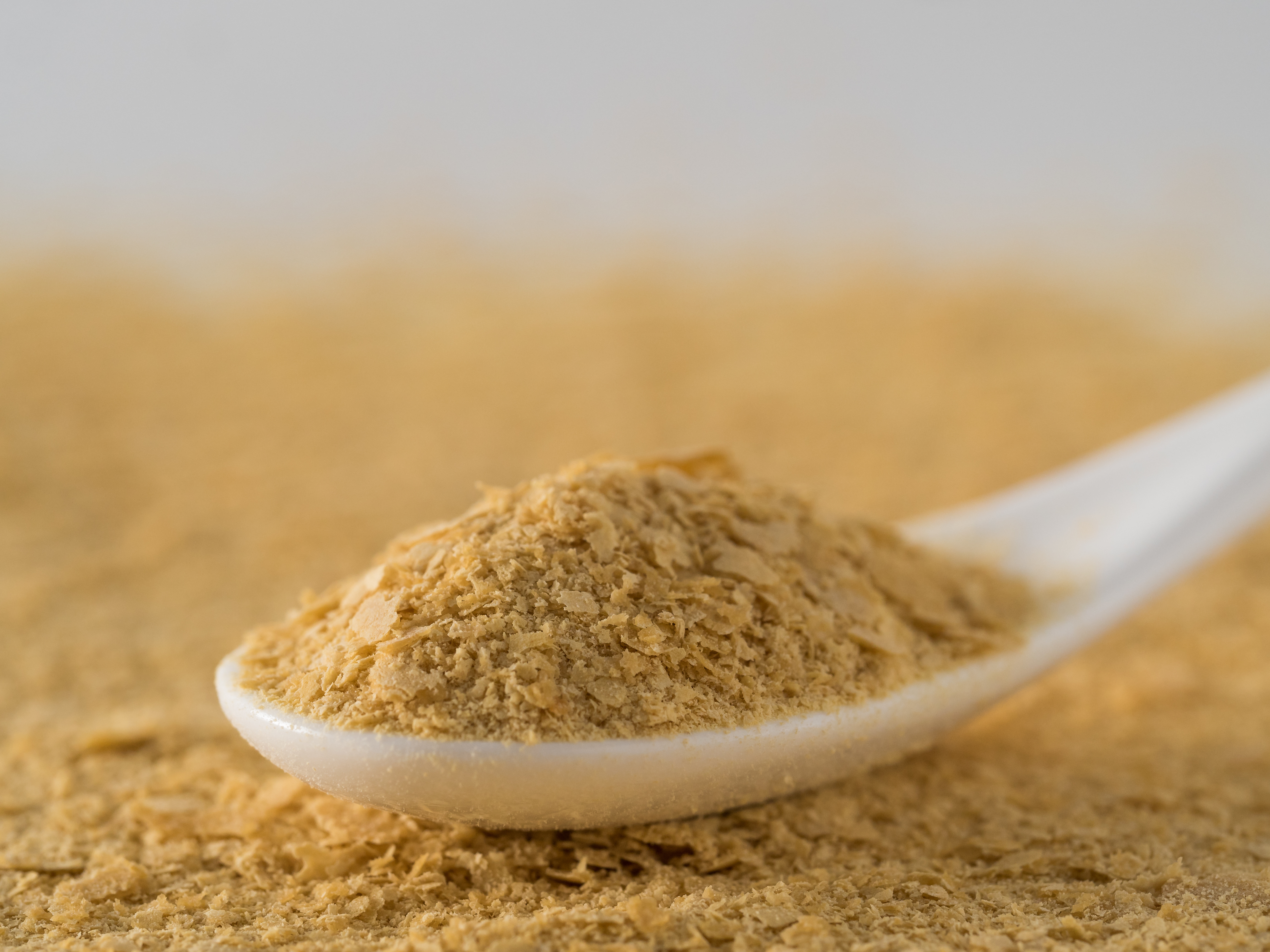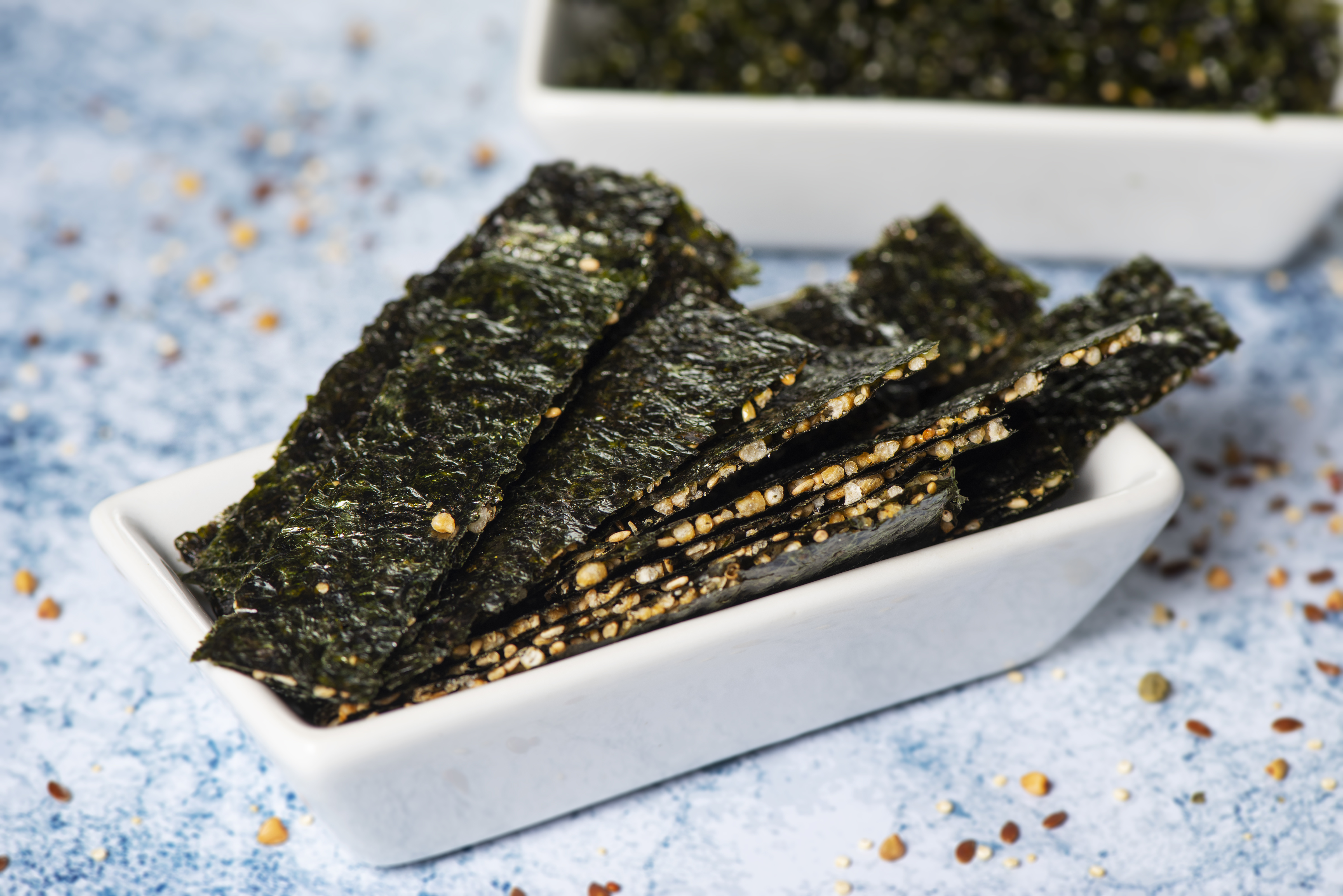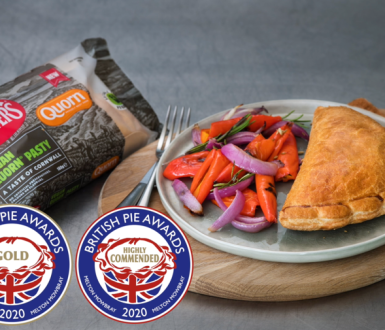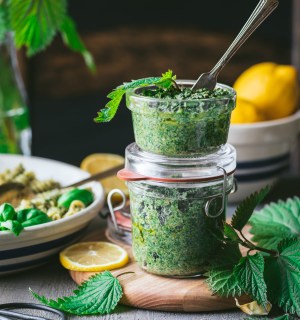Vitamin B12 (cobalamin) is an essential vitamin, which means we cannot live without it and have to obtain it through diet.
It is needed for nerve cell maintenance, DNA formation and red blood cell production.
How much do we need?
We only need a tiny amount but it’s crucial that we do get it. In the UK, the recommended intake is 1.5 ?g (micrograms) of B12 daily, in the US it’s 2.4 ?g and the European Food Safety Authority (EFSA) suggests an adequate intake of 4 ?g.
The liver stores B12 and this stock lasts up to three years. Therefore, you cannot become deficient in a week or even a month but there’s no point in risking a deficiency.
When a deficiency develops, it can have severe consequences so it’s important to ensure regular B12 intake.
Vitamin B12 deficiency
The main symptoms of B12 deficiency include fatigue, lack of energy, muscle weakness, pins and needles sensation, depression and cognitive problems (trouble remembering things, understanding and decision making).
Deficiency can also result in raised levels of the amino acid homocysteine in the blood, which can increase the risk of heart disease and stroke.
At the other end of the spectrum are high B12 intakes – you can take a high daily dose of this vitamin without any side effects but it shouldn’t be more than 2,000 ?g (2 mg), according to the NHS (2017).
Where do we find Vitamin B12?
Vitamin B12 is produced by bacteria in soil and water. Before sanitation, we used to get it from contaminated fruit and vegetables, and other plant foods.
Not only do we wash produce nowadays (and for good reason), but most fruit and veg are pre-washed anyway so there’s not a trace of B12 left. In addition, thanks to intensive farming practices, even soil is depleted and lacking in these bacteria.

Animal products and Vitamin B12
Animal products contain Vitamin B12, whilst most plants do not, and some people use this as an argument against veganism – but things are not so clear cut.
Farmed animals are given vitamins with their feed, which is why their flesh and secretions contain B12. People who consume animal foods effectively consume recycled B12. Isn’t it better to go straight to the source and just take the supplement?
Are meat-eaters deficient in Vitamin B12?
Studies show that insufficient B12 intake is a worldwide problem, with some populations having 30-40 percent of people with inadequate B12 levels (Allen et al., 2018). *
The truth is, it’s hard to get enough vitamin B12 from foods alone, even if you eat animal products.
For us vegans, there are two options – fortified foods or supplements. Vitamin B12 is produced by growing bacterial cultures and extracting it from them (Fang et al., 2017). The process is the same whether it’s B12 for supplements or food fortification.
Fortified foods include some breakfast cereals (check the ingredients label), yeast extracts (eg Marmite or Meridian Yeast Extract), nutritional yeast with B12, vegetable margarines, some meat alternatives and plant milks and yogurts.
If you have these foods on a daily basis, it may be sufficient but taking a supplement is a safer bet. You can take it daily, every other day or a larger dose once a week. B12 supplements usually come with much higher amounts than the 4µg we need so it’s easy to get enough.

What form of Vitamin B12 is the best?
There are several forms of B12 and the debate over which is the best is rife. The most common forms are cyanocobalamin and methylcobalamin.
Cyanocobalamin is the inactive form of B12, which needs to be activated in the stomach by binding with a compound called intrinsic factor. That’s a natural process and most people can rely on cyanocobalamin to cover their B12 needs. Cyanocobalamin is used in the more affordable supplements and fortified foods.
Methylcobalamin is the active form of Vitamin B12 and doesn’t require any activation. However, it’s less stable and more expensive.
Then, there are two other forms of active Vitamin B12 – adenosylcobalamin and hydroxocobalamin.
All four forms of B12 are effective at topping-up your stores. If you are healthy, cyanocobalamin (the cheap one) is perfectly sufficient (Obeid et al., 2015). Some people prefer to take one of the active forms, as they are ready-to-use by your body and that’s perfectly fine.
However, it’s best to combine them with cyanocobalamin once in a while – your body can make any form it needs from cyanocobalamin, which is not the case with the active forms (Thakkar and Billa, 2015).
If you have a B12 deficiency, then a combination of cyanocobalamin with one of the active forms is advisable to increase your levels quickly (Obeid et al., 2015; Thakkar and Billa, 2015) and the same applies if you have a specific condition affecting your B12 metabolism (Paul and Brady, 2017).
What we use…
It’s safe to say we’ve tried many different types of multivitamins and B12 supplements from various brands. We can personally recommend this multivitamin from wearefeel™ , which contains 33 ingredients in their highest quality and bio-availability, with nothing unnecessary added. If you’re looking for just a B12 supplement, we recommend this high potency liquid B12 complex from vivolife™, which contains the most active forms and comes in a liquid for rapid absorption.
If you are concerned about your B12 levels, we recommend getting this Vitamin B12 Test from affordable home health check provider letsgetchecked™ which identifies this key deficiency with online results in 5 days. You can also use code PBN20 for a 20% discount.
Some people need more Vitamin B12 than others
Absorption of B12 may be hindered by several factors – tobacco smoking, kidney disease, older age, general anaesthesia, some medications – Metformin (for diabetes), anticonvulsants, antacids and proton pump inhibitors (PPIs).
In these cases, it’s best to take methylcobalamin and cyanocobalamin but your doctor may also suggest B12 injections. As for the age question, if you’re over 50, you need some extra B12 as our bodies are simply not as efficient at extracting it from foods alone.
Heating food and drinks in a microwave or longer-than-very-brief cooking can also reduce the amount of vitamin B12 available from them.
For example, if you always heat your fortified plant milk in a microwave before using it, you may not be getting enough B12 if that’s your only source of it. It’s a good idea to supplement your B12 a couple of times a week if you normally only rely on fortified foods.
Pernicious anaemia
It is a type of B12-related anaemia, where the body doesn’t have enough vitamin B12 to make red blood cells. It is not caused by a lack of B12 but rather by a deficiency of the intrinsic factor in the stomach needed for B12 to be activated.
This can happen if your stomach lining is weakened due to a condition like gastritis, autoimmune disease or when you have had a procedure that removed a part of the stomach.
In these cases, B12 injections or sublingual methylcobalamin sprays/powders are recommended to avoid deficiency.
Don’t we make our own Vitamin B12?
The bacteria in our guts actually produce Vitamin B12 but unfortunately, it’s of no use to us.
These bacteria live in the colon, which is too far down the digestive tract for us to be able to absorb the vitamin.

Seaweed and fermented foods
There is a lot of (mis)information about food containing Vitamin B12. There have been claims that certain seaweeds contain it as well as fermented foods such as miso, tempeh, kombucha and sauerkraut.
Spirulina – a popular green algae powder claimed to be bursting with nutrients. This is true but it has one big problem – it contains something called B12 analogues. They are compounds with a structure similar to Vitamin B12 so they bind to B12 receptors in the human body but do nothing and block access for the real B12. It can become an issue if you have spirulina every day, as it can have a negative impact on your B12 levels.
Nori – seaweed that comes in sheets or as flakes to be sprinkled on meals. Research shows it may be the only non-animal source of Vitamin B12 (Watanabe et al., 2014) but more data are needed to confirm this.
Fermented foods – this is a broad category including tempeh, miso, natto, kimchi, kombucha, sauerkraut and more. It’s true that the bacteria used for fermentation do produce some B12 so these foods may provide tiny amounts. However, the amounts can be so negligible that it is advised not to rely solely on these products for vitamin B12.
There are some emerging foods that may be natural B12 sources, such as a specific type of duckweed. However, they aren’t mass-produced yet and there isn’t enough data confirming we can truly obtain enough of the vitamin from them.
Unsure about Vitamin B12?
The awareness of the need to watch Vitamin B12 in our diet is increasing. If you’re worried about your intake, you can ask your GP for a blood test. It’s nothing uncommon and when you mention that you’re vegan, they won’t object.
A varied vegan diet supplies almost all we need but there’s no getting around the B12 issue – we do need a little extra help from supplements or fortified foods. We are not alone, many other population groups have low intakes and the elderly may be deficient even if they eat meat three times a day.
As our food production systems change, so do our lifestyle habits and there’s nothing wrong with accepting that we need to add a tiny amount of a bacteria-produced vitamin to our diets.
*References
Allen LH, Miller JW, de Groot L, et al. 2018. Biomarkers of Nutrition for Development (BOND): Vitamin B-12 Review. Journal of Nutrition. 148(suppl_4):1995S–2027S.
Fang H, Kang J, Zhang D. 2017. Microbial production of vitamin B12: a review and future perspectives. Microbial Cell Factories. 16(1):15.
NHS. 2017. Vitamins and minerals – B vitamins and folic acid [online]. Available from https://www.nhs.uk/conditions/vitamins-and-minerals/vitamin-b/
Obeid R, Fedosov SN, Nexo E. 2015. Cobalamin coenzyme forms are not likely to be superior to cyano- and hydroxyl-cobalamin in prevention or treatment of cobalamin deficiency. Molecular Nutrition and Food Research. 59(7):1364–1372.
Paul C, Brady DM. 2017. Comparative Bioavailability and Utilization of Particular Forms of B12 Supplements With Potential to Mitigate B12-related Genetic Polymorphisms. Integrative Medicine (Encinitas). 16(1):42–49.
Thakkar K, Billa G. 2015. Treatment of vitamin B12 deficiency-methylcobalamine? Cyancobalamine? Hydroxocobalamin?-clearing the confusion. European Journal of Clinical Nutrition. 69(1):1–2.
Watanabe F, Yabuta Y, Bito T and Teng F. 2014. Vitamin B12-containing plant food sources for vegetarians. Nutrients. 6 (5) 1861-1873.
*This article contains affiliate links. Find out about our affiliate policy here.














Leave a Comment
Plant Based News Comment Policy
In short:- If you act with maturity and consideration for other users, you should have no problems. Please read our Comment policy before commenting.